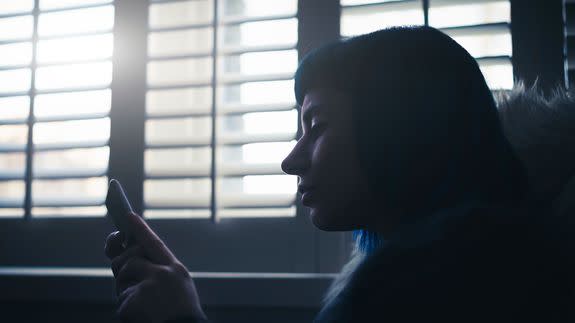Australia is taking on revenge porn, but young people are still at risk

The distribution of revenge porn, an act of digital harassment, is slowly being criminalised across Australia.
Punishing those who share explicit pictures without consent is a welcome development, but commentators say any crackdown ought to be accompanied by another look at how the law treats young people who share intimate images with their peers.
If no change is made, child pornography laws that are intended to protect young people could instead be used to punish normal teenage behaviour.
SEE ALSO: Teen boys are 'abusing' girls online. But how do we talk about it?
On Monday, the state of New South Wales (NSW) announced it would follow Victoria and South Australia in introducing a law criminalising the distribution of intimate or explicit images without consent. "These images can ... be used as a way to deliberately humiliate, control or harass the intended victim," NSW Attorney General Gabrielle Upton said in a statement.
A federal senate committee also recommended revenge porn laws be enacted nationally in February, but a law is yet to be proposed.
NSW will begin a consultation process about the proposed change, and one important question to be answered, Upton noted, is how it should treat young people.
Katie Acheson, CEO of youth advocacy group Youth Action, welcomed NSW's announcement, including the proposed focus on young people. "Young people should be at the centre of this," she told Mashable. "It's about a young person's safety, and also about their healthy development."
Too often, the public has reflexively treated revenge porn and "sexting" as two sides of the same coin when it comes to people under 18. The consensual and non-consensual sharing of intimate pictures by teenagers are often regarded as equally suspect.
That attitude, as well as a slow-moving legal system, has led to a situation where young people are at risk of becoming registered sex offenders under child pornography laws for sharing intimate imagery without harm. While there are few example of the law's use against teenagers, the threat is still on the books.
"Child pornography laws are there to keep young people safe, not to be used to harm them," Acheson emphasised. In her view, NSW's revenge porn law should be accompanied by a change to NSW's child pornography laws to ensure young people aren't punished for consensual behaviour.
"Humans always use their surroundings to express themselves, including their sexuality. The idea that technology isn't going to be a part of that is a bit behind the times," she explained. "We need to have laws that don't penalise young people for acting in an consensual way, but we would want to deter them from doing something that would harm others."
Victoria leads the way
Victoria is one of the only states in Australia that has so far tried to do things differently. While it's an offence in the state to share an intimate image of another person without consent, it's also changed child pornography laws to try and ensure young people are not unfairly ensnared.
From 2014 in Victoria, young people cannot be prosecuted for child pornography offences, so long as the photo shared was of themselves, or if the person receiving the image was under 18 and the person in the photo was no more than two years younger than the person receiving it.
Nicola Henry, a senior lecturer at La Trobe University in Melbourne who has studied revenge porn, told Mashable Australia other states should follow suit.
"Other states and territories haven't amended the legislation," Henry said. "It means a young person could be charged with child pornography offences for taking an image of themselves, storing it on their phone and sharing it consensually."
Dealing with the sharing of explicit images online without consent is a similarly complicated matter, and parties will need to be careful about criminalising young people under laws like the one proposed in NSW.
"Rehabilitation ought to be the focus," youth crime program manager at Legal Aid Victoria, Anoushka Jeronimus, told Mashable. "In relation to young people, regardless of the nature of the offending, you always need to look at that offender as a young person, and they, as far as possible, need to be treated differently to adults."
In Henry's view, more education is also vital for teaching young people about the effects of sharing images without consent — something that could take place through primary prevention initiatives in schools, including "respectful relationships" education.
"We have to come to terms with the fact that this is what young people are doing, and not just young people, but people in intimate relationships are using technology as a tool of flirtation or sexual desire," Henry added. "We need to focus the attention away from the victim and onto the perpetrator. These images are not theirs to share."
The NSW Department of Justice has been contacted by Mashable for comment.
